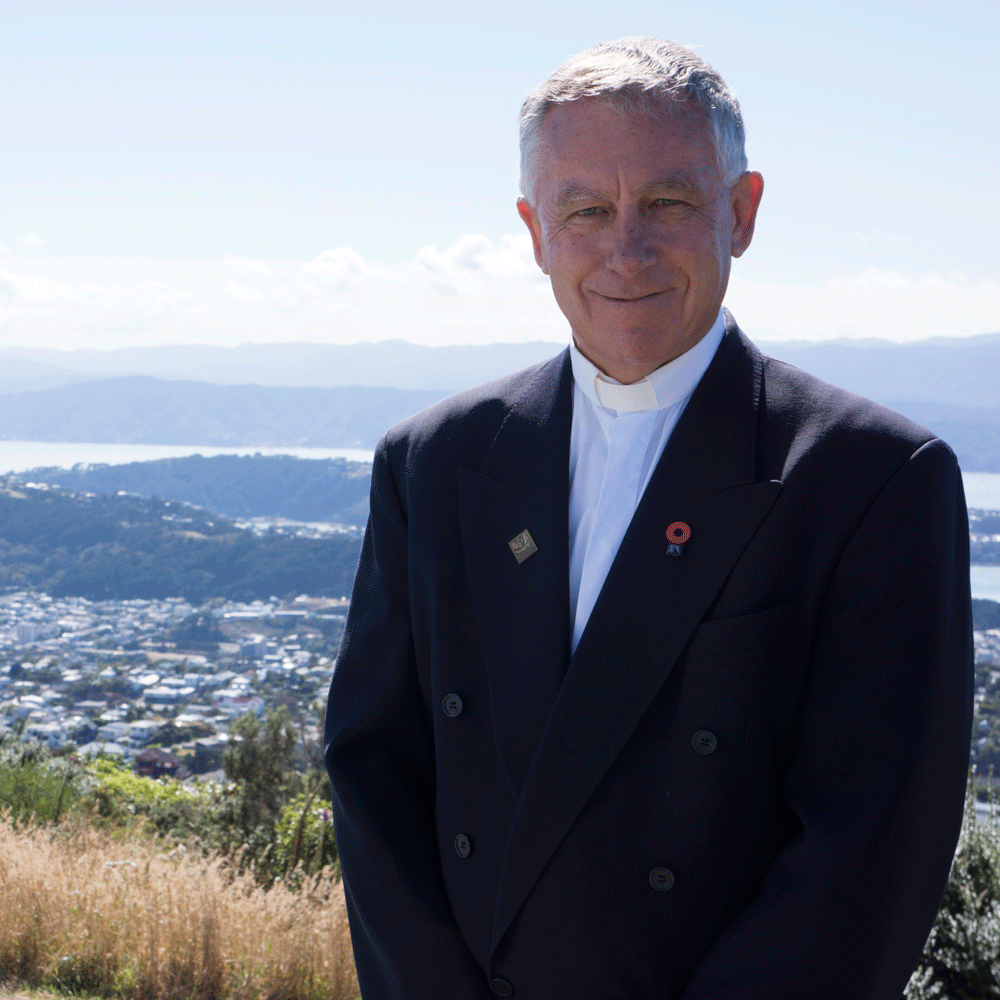WelCom October 2020

Apostolic Administrator of Palmerston North Diocese
+ John A Cardinal Dew
Archbishop of Wellington Archdiocese
Apostolic Administrator of Palmerston North Diocese
Many of us know how precious, and also how difficult, are the hours we sit by the bedside of a loved one at the end of their lives.
Many priests have done this countless times. As a priest I’ve been able to witness moments of love, forgiveness, laughter, remembrance of special memories. I’ve seen words of gratitude and appreciation, I’ve heard long-awaited words of apology, I’ve seen hugs and embraces which express admiration, respect and farewell.
I also know that these are very difficult times for families. Sometimes people are looking at clocks and watches rather than into the eyes of their loved ones. Sometimes family tensions don’t resolve, and family members may disagree about decisions that need to be made. Sometimes the person at the centre feels overlooked and forgotten.
In a few weeks New Zealand will be voting in the referendum on the End of Life Choice Bill. A great deal of words have already been prepared and shared about this legislation. The opposition and concern of disability groups, medical staff, palliative-care providers, and religious leaders have been covered in many aspects of the media. All these people have worked hard and deserve our appreciation.
However, it is still very timely for us in New Zealand that a new document from the Congregation for the Doctrine of the Faith, Samaritanus bonus – The good Samaritan, offers new thoughts on the care of people at the end of life.
It reminds us that true human compassion is caused not by shortening a person’s life, by causing death, but ‘in embracing the sick, in supporting them in their difficulties, in offering them affection, attention and the means to alleviate the suffering’.
Many of us look to palliative care to assist people at the end of their lives. But as essential as palliative care is to help people overcome pain and physical symptoms at the end of life, Samaritanus bonus reminds us that it is loving companionship and accompaniment that is important.
Palliative care in itself is not enough unless there is someone who ‘remains’ at the bedside of the sick to bear witness to their unique and unrepeatable value.
“True human compassion is caused not by shortening a person’s life, by causing death, but ‘in embracing the sick, in supporting them in their difficulties, in offering them affection, attention and the means to alleviate the suffering.”
Our society isn’t good at recognising the value of human life when people are weak and suffering. When people feel their worth is being judged as being about what they can contribute to society economically or whether they can maintain a certain level of independence or autonomy, it isn’t surprising that they themselves may start to feel worthless or a burden.
But this isn’t how we see or experience illness, disability and suffering, even at the end of life, through the eyes of love and faith. When we really look at a person with love, and listen to their words with our hearts as well as our ears, and sit fully present at their side, we know that their lives really matter, including the living that happens in their final days, hours and minutes.
Time spent with a dying person benefits those who remain at their side. It can create family time which is unique. Sometimes it heals rifts. Sometimes unspoken words can finally be said.
Samaritanus bonus reminds us that ‘human life is the primary common good of society’. If we take someone’s life before God’s time, we will miss out on some very intimate and special moments. Euthanasia or assisted suicide will rob us of deep, intimate moments that we can never get again.
If you are of voting age, please vote ‘No’ in the End of Life Choice Bill referendum. But whatever the outcome of the vote, it is important for us to remember that making something legal doesn’t make it morally good. Whether or not euthanasia is legalised at the General Election, we need to remain at the side of those who are dying, as loving, watching, listening witnesses to the immense value of every moment of every human life.
Our society needs people with compassionate hearts who won’t cross to the other side of the road like the Levite and the Priest in the parable, but will stop and show care like the Good Samaritan. Each of us is called in some way to be the Good Samaritan to another, at some stage of our lives. It is a privilege to accompany the dying.
The new Letter from the Congregataion for the Doctrine of Faith 22 September 2020, ‘Samaritanus bonus – on the care of persons in the critical and terminal phases of life’, can be read online at: press.vatican.va/content/salastampa/en/bollettino/pubblico/2020/09/22/200922a.html or: tinyurl.com/Samaritanus-bonus